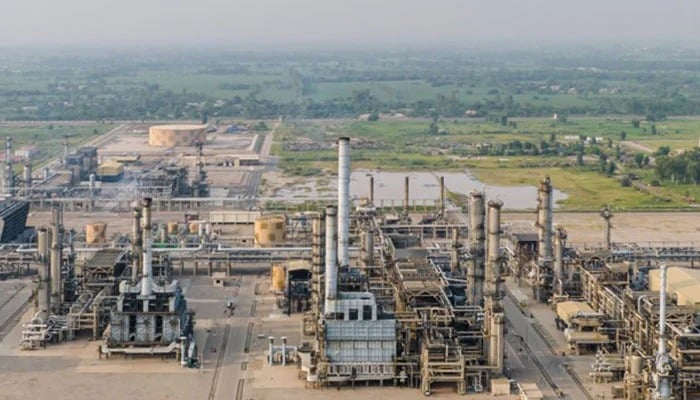Refineries suggest measures to secure $5bn upgrade projects
In latest proposals, estimate total impact on consumers would be about Rs2.05 per litre over six months
January 03, 2025

- Ministry of Energy reviewing measures to resolve policy hurdles.
- Sales tax exemption disputes jeopardising refinery modernisation projects.
- SIFC sets January 7 deadline to finalise refinery agreements.
KARACHI: The country's refining sector has suggested multiple measures to the government to facilitate progress on refinery upgrade agreements under the brownfield refining policy, estimating a maximum consumer impact of Rs2 per litre, The News reported.
In the latest set of proposals aimed at resolving disputes over the sales tax exemption on petroleum products — which has blocked the signing of refinery agreements — the sector estimated that the total impact on consumers would amount to approximately Rs2.05 per litre over six months if refineries are allowed to recover costs retrospectively from July 2024, when the sales tax was exempted on petroleum products in the Finance Bill for the current financial year (FY25).
If refineries are allowed to recover the cost prospectively, the total impact on consumers has been calculated at Rs1 per litre. However, refineries are unwilling to recover costs prospectively and are insisting on recovering them retrospectively, people familiar with the deliberations revealed.
The refineries provided their input when the Ministry of Energy sought their suggestions ahead of a meeting with the Federal Board of Revenue (FBR), scheduled for Friday (today).
The sector proposed restoring the status of petrol, high-speed diesel (HSD), light diesel oil (LDO) and kerosene as zero-rated taxable supplies retrospectively from July 2024. It also suggested exempting sales tax on project-related supplies and services.
The sector proposed imposing a sales tax of up to 2% on petrol and diesel each prospectively, along with a six-month adjustment from the Inland Freight Equalization Margin (IFEM) to address operational and project-related sales tax claims in the initial years.
The impact of the price increase, it noted, could be neutralised through an equivalent reduction in the petroleum levy (PL).
Regarding the potential reduction in government revenue if PL is reduced to offset the increase in IFEM/GST, the sector believes it would be equivalent to the input sales tax claims to be adjusted by refineries, amounting to Rs2.05 per litre.
Efforts to resolve the issues hindering the upgradation agreements of refineries — an initiative involving $4-5 billion in investment — were expedited after the Special Investment Facilitation Council (SIFC) directed the removal of obstacles and set a deadline of January 7 for the refineries to sign the agreements.
During last month’s SIFC meeting, it was highlighted that the exemption of sales tax on petroleum products (petrol, kerosene, diesel, and LDO) in the budget for 2024-25 rendered the upgradation and refinery operations apparently unviable, impacting overall project costs by $763 million, putting routine refinery operations at risk, and making them unsustainable.











